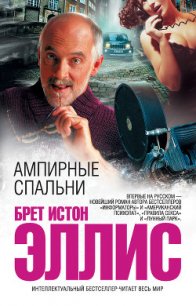True Names - Vinge Vernor Steffen (читать книги онлайн полностью без регистрации .txt) 📗
Yet, what do such convictions really mean? Since "Self-awareness" ought to be an awareness of what's going on within one's mind, no realist could maintain for long that people really have much insight, in the literal sense of seeing in.
Isn't it remarkable how certainly we feel that we're self-aware — that we have such broad abilities to know what's happening inside ourselves? The evidence for that is weak, indeed. It is true that some people seem to have special excellences, which we sometimes call "insights", for assessing the attitudes and motivations for other people. And certain individuals even sometimes make good evaluations of themselves. But that doesn't justify our using names like insight or self-awareness for such abilities. Why not simply call them "person-sights" or "person-awareness?" Is there really reason to suppose that skills like these are very different from the ways we learn the other kinds of things we learn? Instead of seeing them as "seeing in," we could regard them as quite the opposite: just one more way of "figuring out." Perhaps we learn about ourselves the same ways that we learn about un-self-ish things.
The fact is, the parts of ourselves which we call "self aware" are only a small fraction of the entire mind. They work by building simulated worlds of their own — worlds which are greatly simplified, in comparison with either the real world outside, or with the immense computer systems inside the brain: systems which no one can pretend, today, to understand. And our worlds of simulated awareness are worlds of simple magic, wherein each and every imagined object is invested with meanings and purposes. Consider how one can but scarcely see a hammer except as something to hammer with, or see a ball except as something to throw and catch. Why are we so constrained to perceive things, not as they are, but as they can be used? Because the highest levels of our minds are goal-directed problem-solvers. That is to say that all the machines inside our heads evolved, originally, to meet various built-in or acquired needs, for comfort and nutrition, for defense and for reproduction. Later, over the past few million years, we evolved even more powerful sub-machines which, in ways we don't yet understand, seem to correlate and analyze to discover which kinds of actions cause which sorts of effects; in a word, to discover what we call knowledge. And though we often like to think that knowledge is abstract, and that our search for it is pure and good in itself — still, we ultimately use it for its ability to tell us what to do to gain whichever ends we seek (even when we conclude that in order to do that, we may first need to gain yet more and more knowledge). Thus, because, as we say, "knowledge is power", our knowledge itself is enmeshed in those webs of ways we reach our goals. And that's the key: it isn't any use for us to know, unless our knowledge tells us what to do. This is so wrought into the conscious mind's machinery that it seems too obvious to state: no knowledge is of any use unless we have a use for it.
Now we come to see the point of consciousness: it is the part of the mind most specialized for knowing how to use the other systems which lie hidden in the mind. But it is not a specialist in knowing how those systems actually work, inside themselves. Thus, as we said, one walks without much sense of how it's done. It's only when those systems start to fail to work well that consciousness becomes engaged with small details. That way, a person who has sustained an injured leg may start, for the first time, consciously to make theories about how walking works: To turn to the left, I'll have to push myself that way — and then one has to figure out, with what? It is often only when we're forced to face an unusually hard problem that we become more reflective, and try to understand more about how the rest of the mind ordinarily solves problems; at such times one finds oneself saying such things as, "Now I must get organized. Why can't I concentrate on the important questions and not get distracted by those other inessential details?"
It is mainly at such moments — the times when we get into trouble — that we come closer than usual to comprehending how our minds work, by engaging the little knowledge we have about those mechanisms, in order to alter or repair them. It is paradoxical that these are just the times when we say we are "confused", because it is very intelligent to know so much about oneself that one can say that — in contrast merely to being confused and not even knowing it. Still, we disparage and dislike awareness of confusion, not realizing what a high degree of self-representation it must involve. Perhaps that only means that consciousness is getting out of its depth, and isn't really suited to knowing that much about how things work. In any case, even our most "conscious" attempts at self-inspection still remain confined mainly to the pragmatic, magic world of symbol-signs, for no human being seems ever to have succeeded in using self-analysis to find out very much about the programs working underneath.
So this is the irony of True Names. Though Vinge tells the tale as though it were a science-fiction fantasy — it is in fact a realistic portrait of our own, real-life predicament! I say again that we work our minds in the same unknowing ways we drive our cars and our bodies, as the players of those futuristic games control and guide what happens in their great machines: by using symbols, spells and images — as well as secret, private names. The parts of us which we call "consciousness" sit, as it were, in front of cognitive computer-terminals, trying to steer and guide the great unknown engines of the mind, not by understanding how those mechanisms work, but simply by selecting names from menu-lists of symbols which appear, from time to time, upon our mental screen-displays.
But really, when one thinks of it, it scarcely could be otherwise! Consider what would happen if our minds indeed could really see inside themselves. What could possibly be worse than to be presented with a clear view of the trillion-wire networks of our nerve-cell connections? Our scientists have peered at fragments of those structures for years with powerful microscopes, yet failed to come up with comprehensive theories of what those networks do and how. How much more devastating it would be to have to see it all at once!
What about the claims of mystical thinkers that there are other, better ways to see the mind. One recommended way is learning how to train the conscious mind to stop its usual sorts of thoughts and then attempt (by holding very still) to see and hear the fine details of mental life. Would that be any different, or better, than seeing them through instruments? Perhaps — except that it doesn't face the fundamental problem of how to understand a complicated thing! For, if we suspend our usual ways of thinking, we'll be bereft of all the parts of mind already trained to interpret complicated phenomena. Anyway, even if one could observe and detect the signals which emerge from other, normally inaccessible portions of the mind, these probably would make no sense to the systems involved with consciousness, because they represent unusually low level details. To see why this is so, let's return once more to understanding such simple things as how we walk.
Suppose that, when you walk about, you were indeed able to see and hear the signals in your spinal cord and lower brain. Would you be able to make any sense of them? Perhaps, but not easily. Indeed, it is easy to do such experiments, using simple bio-feedback devices to make those signals audible and visible; the result is that one may indeed more quickly learn to perform a new skill, such as better using an injured limb. However, just as before, this does not appear to work through gaining a conscious understanding of how those circuits work; instead the experience is very much like business as usual; we gain control by acquiring just one more form of semi-conscious symbol-magic. Presumably, what happens is that a new control system is assembled somewhere in the nervous system, and interfaced with superficial signals we can know about. However, bio-feedback does not appear to provide any different insights into how learning works than do our ordinary, built-in senses. In any case, our locomotion-scientists have been tapping such signals for decades, using electronic instruments. Using those data, they have been able to develop various partial theories about the kinds of interactions and regulation-systems which are involved.




